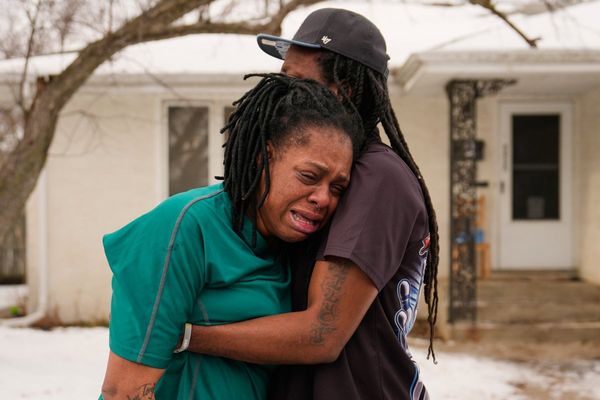
Money and family have always made a messy mix. Yet in recent years, a troubling trend has emerged: loans between family members are quietly unraveling relationships at an alarming rate. These aren’t just minor disagreements or awkward holiday dinners—they’re full-blown breakdowns that rival the emotional fallout of divorce.
While society often braces for the emotional toll of marriages ending, far fewer people are prepared for the long-term damage that can come from lending money to a relative. The emotional currency in family ties is often stretched thinner than the financial ones.
Trust Turns Transactional
At the heart of every family loan is trust, but that trust becomes transactional the moment money enters the picture. When someone borrows money from a sibling, parent, or cousin, the relationship instantly shifts—even if no one wants to admit it. Every birthday call feels more loaded, every missed payment breeds quiet resentment, and every gathering has a hint of unspoken tension. Unlike a bank loan, family loans come with emotional interest rates: guilt, shame, and obligation that linger long after the dollars are spent. Over time, love becomes collateral damage in a loan that was supposed to help, not harm.
Expectations Without Agreements
One major reason family loans go wrong is the lack of formal agreements. Most family members skip contracts, repayment terms, or interest plans because it feels too cold or business-like. But when expectations aren’t clearly set, assumptions take over—and assumptions almost always disappoint. The lender might expect quick repayment, while the borrower assumes flexibility and patience. That unspoken gap widens with every passing month, until one person feels taken advantage of and the other feels judged.
The Power Imbalance Problem
Every family loan creates a subtle—or not-so-subtle—power imbalance. The person who lends money often feels entitled to offer advice, weigh in on financial decisions, or judge how the borrower lives. The borrower, meanwhile, may begin to feel like they’re under surveillance or living in a state of permanent apology. This imbalance can turn a once-equal relationship into one marked by hierarchy, control, and quiet resentment. Over time, the relationship no longer feels safe or balanced—it feels like debt in disguise.
Money Magnifies Existing Issues
Family loans don’t usually cause conflict from nowhere; they amplify issues that already exist. If there’s already sibling rivalry, favoritism, or unspoken tension, the introduction of a financial favor just sets those problems on fire. Suddenly, old wounds resurface—like who got help from mom and who didn’t, or who always needs saving and who always steps in. Money simply gives these emotional patterns a stage to play out on, making them more vivid and volatile. What might have been a manageable rift becomes a chasm when dollars get involved.
Resentment Rarely Gets Voiced
One of the most toxic elements of family loans is that resentment often goes unspoken. Borrowers don’t want to appear ungrateful or defensive, so they stay silent about feeling pressured or judged. Lenders don’t want to seem petty or selfish, so they suppress frustration when repayments don’t happen. That silence builds up like steam in a pressure cooker, waiting for one wrong word at Thanksgiving to blow it all open. And once it explodes, the damage isn’t just emotional—it’s relational, often irreversible.

The Silent Guilt of Borrowers
Borrowing money from a family member may feel like temporary relief, but it often leaves behind a persistent guilt. Even when no one brings up the loan, it hovers over interactions like a shadow. Every gift given, every new purchase made, feels like a possible offense. Borrowers might even avoid family gatherings to escape the feeling of being judged, even if no words are said. In the long run, that guilt drives people apart more than any financial shortfall ever could.
The Martyrdom of the Lender
On the other side, lenders often fall into the role of martyr—quietly sacrificing their own needs for the good of the family. They may not admit it out loud, but the feeling of having to rescue a loved one can turn from pride to bitterness. Especially if repayment is delayed—or never comes—lenders begin to feel like their kindness is being taken for granted. Over time, their generosity feels like a burden they regret taking on. And with every unpaid dollar, affection gets replaced with quiet resentment.
Families Don’t Come with Financial Counselors
Unlike businesses or banks, families don’t have third-party mediators to guide financial transactions. Without someone neutral to create structure, emotions run the show—and not in a good way. People skip hard conversations, avoid putting things in writing, and assume that love will smooth over the details. But love can’t enforce a payment plan, and it can’t rewrite misunderstandings that go unresolved. Without boundaries, even the most well-intentioned loan becomes a recipe for future heartache.
The Unfair Double Standard
Family members often hold each other to very different standards than they would a stranger or a friend. A loan from the bank has clear terms, but a loan from Uncle Joe comes with layers of emotional history and unspoken rules. That double standard leads to people being more forgiving—or more demanding—depending on who’s involved. It’s easy to judge a cousin harshly for late payments while excusing a friend for the same thing. Over time, those unequal expectations corrode fairness and foster resentment.
Broken Relationships, No Legal Recourse
When family loans go bad, there’s rarely a legal solution. Most people won’t sue a sibling or parent, even if the money is significant. That leaves one party feeling financially wronged and the other emotionally cornered, with no way to repair the damage. The only thing left to break is the relationship itself—and in many cases, that’s exactly what happens. No judge, no courtroom, just silence where family used to be.
When Love and Loans Collide
Family loans often begin with love, trust, and good intentions. But when financial boundaries aren’t respected, the consequences can quietly unravel relationships in ways more painful than divorce. Unlike the legal clarity of a marital split, broken family ties over money are murky and unresolved. The hurt lingers, the silence grows, and the connection—once rooted in care—dies from a mix of guilt, shame, and unspoken anger. It’s a high cost for what often started as an act of help.
Have you or someone you know been through the emotional fallout of a family loan? Share your thoughts or leave a comment below—this is a conversation that too many people are having in private, and it’s time to bring it into the light.
Read More
Yes, You Can Have It: 7 Rules To Follow When Giving Not Loaning Money to Others
Loaning Money Is A Mistake Unless You Set These Ground Rules
The post Family Loans Are Destroying More Relationships Than Divorce—Here’s Why appeared first on Everybody Loves Your Money.







